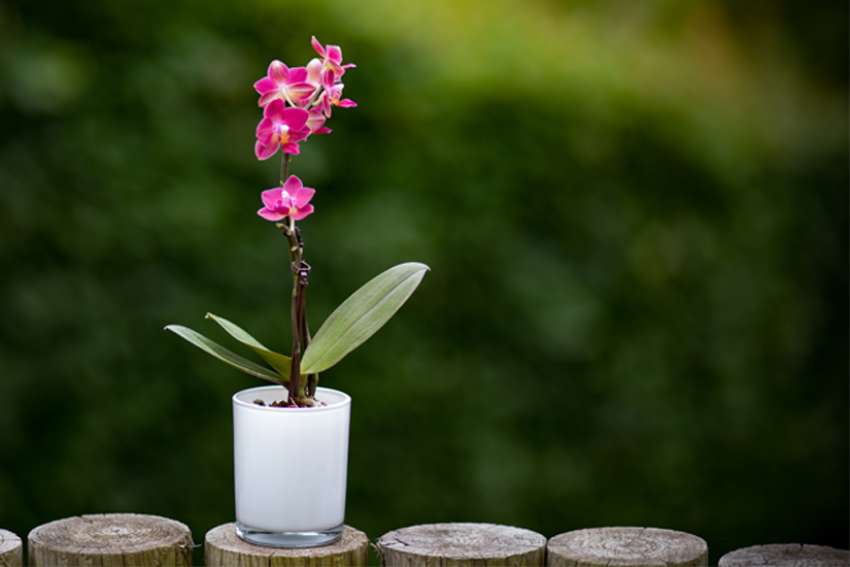It turns out that it isn’t unusual for plants to flower when they are under stress. There is an enormous amount of research that shows how this may well be the organism’s “emergency effort” to propagate the species at a time of perceived risk.
Neil Mattson, writing for Greenhouse Grower magazine, notes that a plant that has “been coddled in the greenhouse may not perform as well once taken to a more stressful environment.” Your plant, he argues, is essentially born in Club Med, coddled and protected, and then rudely sent out into the “real world” where it suddenly needs to learn to adapt to tougher conditions.
Who knew? Our homes are actually ghettos for the delicate florals of the world.
I couldn’t help but extend this to parenting. As a first-time dad I pretty much swathed my son in cotton wool and was so hyper-alert to anything remotely bacterial that when he hit child care he caught every illness known to human kind … which he of course graciously brought home and gave to me. “Here dad, have a bit of bubonic plague!”
When my daughter was born, however, I was more realistic and battle worn. When I caught her eating dog food I thought, “I’d better buy a better brand for next time,” (OK, maybe I exaggerated that last one a little, but you get my point.) The fact is I was a lot more mellow about everything and her immune system, as a result, is extraordinary.
I wonder sometimes if this isn’t the same with our faith life. I say this, of course, as someone who isn’t a theologian. It does seem, however, as though we battle at times to preserve certain rules and rituals, and then get overly upset if anyone “gets it wrong.”
I had someone give me a dirty look in Mass one time because I said, “Thy will be done,” rather than “Your will be done.” Indeed, I was surrounded by people, every one of whom seemed to have a slightly different version of the liturgy. Clearly this upset a few of the parishioners around me.
My first thought was, “Wow, look at this great crowd. Who says attendance is down?”
Similarly, I can’t help but wonder if the trials and tribulations that we face help us to bloom rather than wilt. No one likes adversity, but if I look back at the challenges I have faced in my life, they have had the effect of making me stronger and more resilient. What doesn’t kill you and so forth.
One could even say that I have often bloomed in adversity, as though the challenge, and the ability to rise above the gloom, has given me added incentive. And when I see my children struggle, I have to remind myself that some challenges are needed to build their immune system and to prepare them for the real world.
Needless to say, I thought of Job as I wrote this. Job is arguably the most put-upon individual in the Bible. Indeed, one critic argued that Job offers “one of the greatest statements of faith in all of Scripture” when he says, “Though He slay me, I will hope in Him” (Job 13:15). And so he does. Job stays true to God — surviving a test that few of us could pass.
In a major, unscripted address, Pope Francis urged all Christians to rally against adversity, reminding us that “in this land of pain, of tragedies, amid so many calamities, the faith in the resurrected Christ gives us meaning.” Sometimes this is difficult to do.
When a loved one is in pain, when a good person suffers, it is nearly impossible to cast confusion aside and trust in a deeper plan — one, moreover, that we have no hope of truly comprehending. Indeed, in Job, God makes that point. “Who is this that questions My wisdom with such ignorant words?” (38:2), to which Job replies that he takes it back “and I repent in dust and ashes” (42:6).
In truth, it seems, adversity often makes us stronger and human compassion sometimes burns brightest when the light seems all but gone. Time and again, at home and around the world, we see acts of virtue and courage, compassion and care, emerging in spaces and moments of devastation: from the floods in Calgary to the hurricane in the Bahamas.
For all the stories of cruelty and abuse, there are more about good people who take a stand. In the end we do well to remember that adversity calls forth the bloom and, as Lady Bird Johnson once said, “Where flowers bloom so does hope.”
(Turcotte is president of St. Mary’s University in Calgary.)


